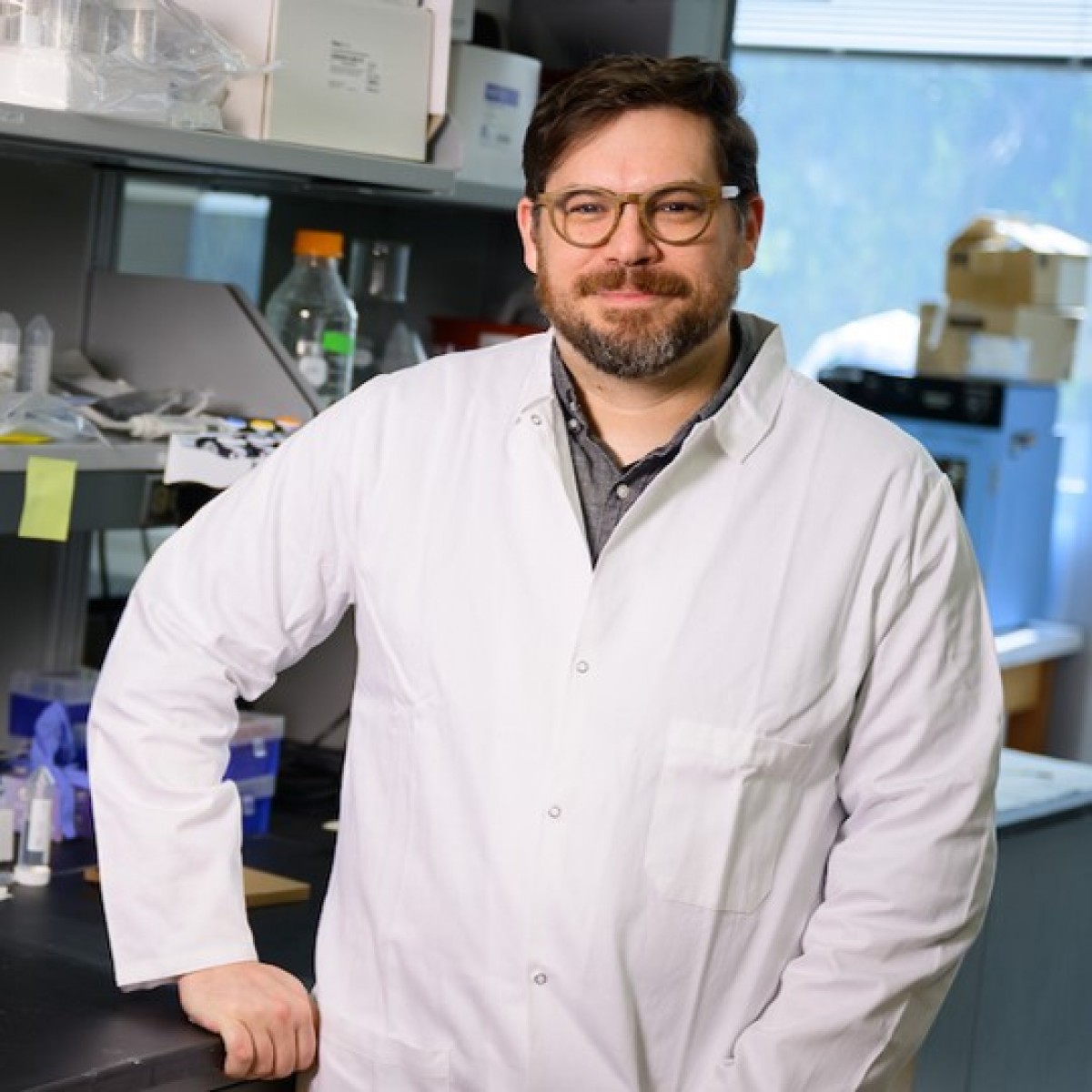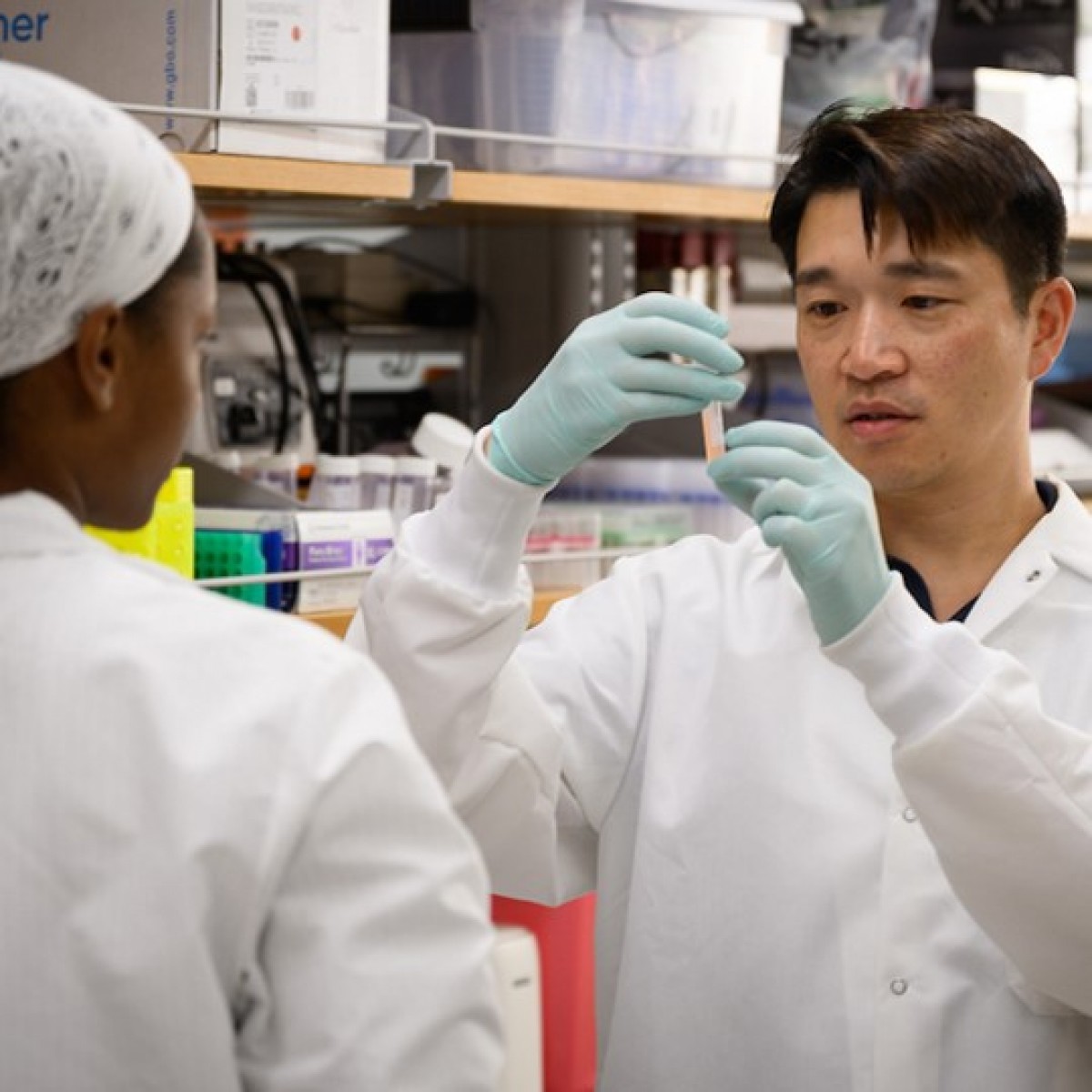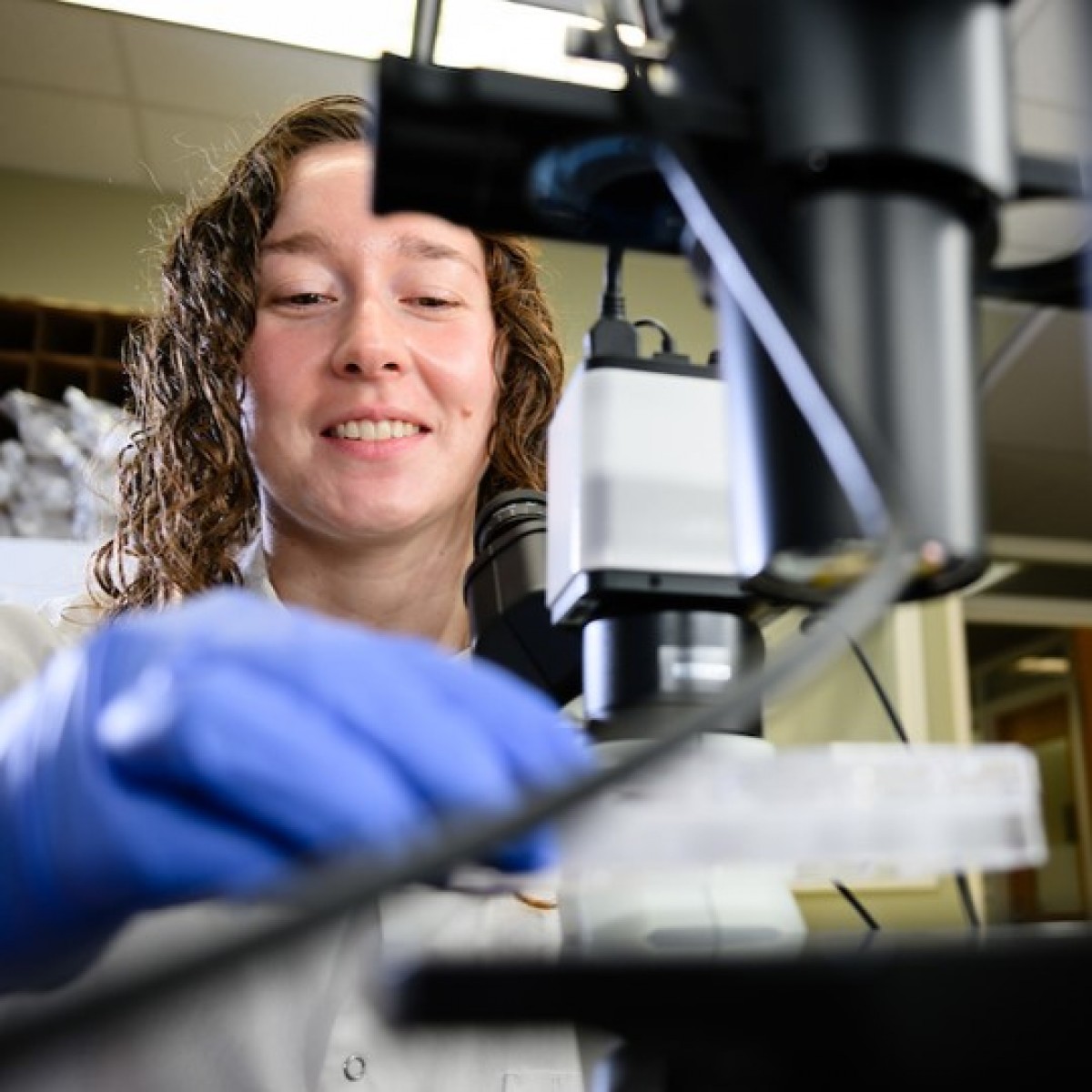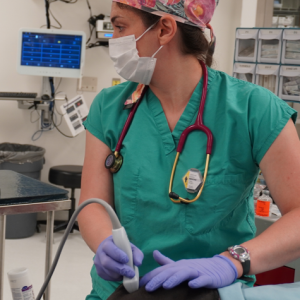One Committed and Caring NC State Veterinary Student, So Many Choices
Compassion, community and care are every bit as foundational to Joseph Richardson’s core as calcium and carbon.
His maternal grandfather, likely the first Black physician in rural Hertford County, North Carolina, opened his clinic in 1938, served his country in the medical corps during World War II and then spent five more decades caring for multiple generations of patients in Ahoskie, population under 5,000.
His mother, a Duke University undergraduate with a medical degree from East Carolina University, returned to her northeastern corner of North Carolina as an ob/gyn to care for underserved women before earning a master’s in public health from UNC-Chapel Hill and leading public health efforts in Detroit.
His father, a third-generation pastor, has dedicated his life to caring for souls.
The only thing that has surprised anyone who knows Richardson, a third-year veterinary student at the NC State College of Veterinary Medicine, is that the humble and kind hard-worker has chosen to care for people by caring for their animals — though which animals is the evolving question.
Many students arrive at vet school knowing exactly which path they will pick, whether it be small animal medicine, equine, lab animal, exotic, large animal, farm animal. But NC State’s veterinary college offers so many experiences and opportunities that would-be veterinarians often surprise themselves by discovering something that excites them more.
Richardson’s current passion is the herd of dairy cows that live at the college’s rare and beautiful Teaching Animal Unit — an 80-acre farm right outside classroom doors, all inside the Raleigh city limits. Watching the sun rise over the farm’s pond early one morning, Richardson realized he felt at home.
His focus on animals, however, began with fowl and a neighbor called Porkchop.
Amazing Things in the World
Porkchop, whose name was Thomas Porter, was a parishioner of Richardson’s dad who kept chickens and goats at his home. A young Richardson loved chasing those chickens around the yard while the grown men talked.
“I thought they were the most amazing thing in the world,” Richardson says. “I wanted my own chickens, but my parents said, ‘We don’t know anything about chickens.’”
His mother then bought him poultry books and told him that, if he really wanted to raise chickens, he needed to do his research.
“I was in the third grade, and I knew everything there ever was to know about chickens,” he says with a laugh, and his parents, true to their word, got him an incubator for Christmas. With fertilized eggs he got from Porkchop, Richardson hatched more than 30 chicks, and his parents helped him build a coop for them.
“That’s where things kind of got started,” he says.
In high school, Richardson used eggs from his chickens to complete a science fair project, comparing the quality of yolks and shells between store-bought eggs and those laid in his backyard. (The yolks and shells of his birds’ eggs were thicker.)
Knowing his goal was to enter veterinary medicine, before he left to attend NC A&T State University in Greensboro, Richardson asked his local veterinarian whether he could shadow him that summer. When the doctor later retired, leaving Hertford County with no veterinarian, Richardson realized he hoped to practice in an underserved rural community.
“I reached out to him, and he let me intern there, and I was like, ‘Wow, this is amazing,’” Richardson says. “I thought small animal medicine was what I wanted to do. I liked the client communication part of it, and those clients are usually more willing to do diagnostics and procedures for their dogs and cats.”
But at NC A&T, the only land-grant institution in North Carolina other than NC State, Richardson discovered a fascination with farm life and large animals. The students in the Department of Animal Sciences there spend hours in labs on the university’s nearly 500-acre farm.
Richardson had chosen NC A&T for his undergraduate degree because, coming from such a rural area, he found the idea of attending college with nearly 40,000 students at NC State intimidating, he says. Even at A&T, the country’s largest HBCU with 15,000 students, he feared he had made a mistake.
“At the TAU, they teach us different things, and it’s a weird thing to put into words, but when you’re doing something and you feel like this is where you’re supposed to be, it’s, like, right.”
— Joseph Richardson, third-year NC State veterinary student
Struggling at midterm of his first semester, he met with another pivotal person in his life, his adviser, Yewande Fasina.
“She said, ‘I know it’s rough right now, but you can turn it around,’” Richardson remembers. “I was so scared, but I ended up turning it around. That’s when I knew I could hang in there. I just had to figure out myself, had to grow up a little bit, figure out how to study.”
When Fasina saw how hard Richardson worked, she offered him a job in her poultry research lab, where he stayed employed until he graduated.
‘They Saw Something in Me’
With the COVID pandemic in full swing, Richardson decided to take a year off before applying to veterinary school at NC State, but he moved to Raleigh anyway and got a job at Quail Corners Animal Hospital.
“I applied to a lot of different places, but I didn’t have a lot of vet experience, so a lot of places didn’t give me a chance, but they saw something in me,” he says. “They gave me a chance, and it’s been history ever since. I definitely made a family in that little hospital.”
At Quail Corners, Richardson’s veterinary interest swung back to companion animals because he fell in love again with talking with clients and helping them navigate their relationships with their pets.
“With some people, their animals are their whole life,” he says. “Some people don’t have children, and some of our older clients, their husband or wife had died, and the animal was the last piece they had from somebody they loved. Being able to talk those people through things and help them in times of crisis was really special to me.”
When he was accepted as a veterinary student at NC State, Richardson thought his path was set. Upon receiving his DVM in 2027, he would work with companion animals in a rural area, possibly Hertford County, and become a critical part of a close-knit community.
The curriculum at the NC State College of Veterinary Medicine, however, sends every veterinary student, regardless of focus, through labs at the Teaching Animal Unit, where dairy cows, beef cows, goats and pigs are bred and raised. Sometimes, the farm animal ways become irresistible.
“At the TAU, they teach us different things, and it’s a weird thing to put into words, but when you’re doing something and you feel like this is where you’re supposed to be, it’s, like, right,” he says. “You can fight it all you want, but it’s kind of hard, and that’s when I knew I should give this more attention than I had been.”
To help care for the teaching animals around the clock, the TAU also hires veterinary students as employees, and Richardson took a job there in November, showing up routinely at 5 a.m. to help milk the cows.
“I love this little slice of heaven in the middle of Raleigh,” he says. “I just love it.”
So does Dr. Allison West, clinical veterinarian for the TAU and for NC State’s Reedy Creek Equine Farm, who cannot say enough good things about the unit and the time Richardson spends there.
“He’s just such a hard worker,” West says. “He notices everything, and he is skilled. I trust him to do pretty much anything. He’s not going to hurry. He’s always patient and takes the time to get things done the right way. He notices every little thing about our cows, from a scratch to lameness to an eyeball, just anything.”
‘We are a Dying Breed’
Having the TAU literally steps away from the college’s classrooms offers NC State’s veterinary students experiences that are foreign to a majority of young people and that open many eyes. More than 70% of veterinary students go into companion animal medicine.
“Not everybody is privileged to have access to what we have on our campus, so our hope is to inspire at least one or two students per year to become farm or food animal vets,” West says. “We are a dying breed, and that’s two more who will replace retiring ones and become leaders in the practice. This is a land-grant university in a very ag-heavy state, so we fit with the mission of the university beautifully.”
At last gut-check, Richardson had decided to be a mixed-animal veterinarian who can serve anywhere — but his anywhere needs to be rural, he says, preferably near farms and country folk.
“I know the challenges of people who live in rural areas with affording or even being educated about certain care for their pets or certain veterinary practices,” he says. “I want to just go and become a part of a community, where everyone knows me as Dr. Richardson, and says, ‘You know, he’ll do his best for you.’”
Just like his doctor grandfather, a trail-blazer Richardson grew up hearing “saved my life” or “gave me medical care when nobody else would,” and his doctor mother, who cared deeply for everyone around her and always remembered to check back in, he says.
West is confident that the same sentiments will be said of Richardson, no matter where he ends up.
“All of us at the TAU think he’s just so sweet and wonderful,” she says. “We can’t wait to see where his career goes.”
Author: Burgetta Eplin Wheeler
Source: https://news.cvm.ncsu.edu/














List
Add
Please enter a comment